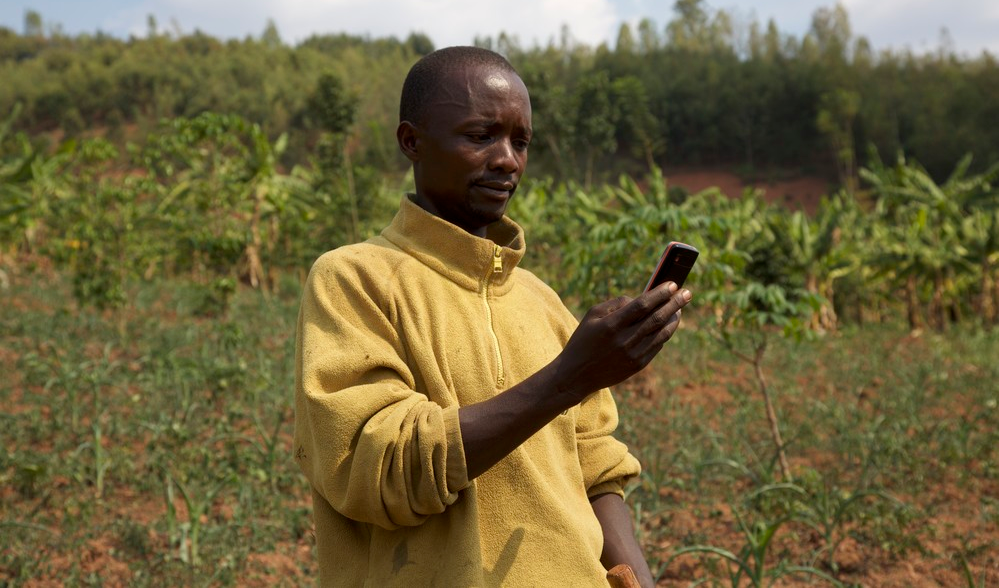Perspectives is a series that highlights emerging issues in the area of agri-SME and smallholder finance from the perspective of practitioners and thought leaders from within and outside the SAFIN network. In this interview, Martijn Blom, Senior Investor Relations Manager at Hivos Impact Investments, describes the company’s experience and the role of impact investors in supporting the growth of innovative, early stage agri-SMEs.
Since 1968, Hivos Foundation has worked to empower agents of social change through its grant programs and microfinance initiatives. In recent years, Hivos has also ventured on a new path to foster financial inclusion and support small-scale enterprises that can deliver social impact, through Hivos Impact Investments. In this interview, Martijn Blom, Senior Investor Relations Manager at Hivos Impact Investments describes the company’s experience so far and how impact investors can play a greater role in supporting innovative, early stage agri-SMEs to grow more investable.
Why did Hivos Foundation branch out into impact investment?
Next to its programs and grants, Hivos saw impact investment as a tool to reach its goal and foster greener societies, by supporting entrepreneurs with capital and other means so they can create greater value. We found that most impact investors and others in the development finance landscape tend to focus on SMEs at relatively mature stages of development, while accelerators and support programs are active in the initial phases. We decided to focus on entrepreneurs that operate somewhere in between these stages, striving to address this financing gap.
How differently do NGOs and traditional financiers approach impact investment?
While NGOs can take a number of different approaches to impact investing, one difference between NGOs and traditional financial institutions is that the former often tend to go more in depth on the impact they want to make with the investments that are made possible by their financial interventions. In our case, we focus not only on economic indicators like increase in income but also on desired impact on food systems like preventing soil degradation and food loss.
Do agriculture and food systems have peculiar features from an impact investor perspective?
Agriculture is one of the main drivers of economic development in many developing countries and this generates a lot of interest from different types of actors. Multinational corporations, governments, multilateral organizations, smallholders and larger farmers all have their interests in the sector. These different interests shape the environment in which investors operate in more complex ways than is the case in other sectors, making investment in agriculture a less straightforward affair. On the other hand, because it is so essential, a lot of opportunities to make an impact come with the sector.
What is the Food and Lifestyle Fund? Who does it target and how do you measure its success?
The Hivos Food and Lifestyle Fund invests in early stage companies that can reduce food miles, prevent soil degradation and create more diverse, healthier diets. We have very specific impact targets for which we created an extensive reporting method, supported by a theory of change and a measurement system. We measure the results of each company every quarter, including economic development impact factors such as inclusive job creation especially for women and for smallholder farmers. Since we work with early stage companies, these indicators are often directly related to their output and income impact.
What is your vision for the future of investment in agri-SMEs? What role do you think impact investors play is moving towards that future?
Agriculture is quite vulnerable to climate change and a lot of innovation is necessary to keep food production up with current population growth rates. Traditional finance is important but it doesn’t necessarily provide the capital to help the needed innovations to bloom- they are often considered too risky or too costly. This is where impact investors come in, we have a higher risk appetite and we can support agri-SMEs become an innovative force to address these challenges.
Martijn is an experienced startup investor with special expertise in impact investment in the international development context. His portfolio includes companies with activities in East Africa, Angola and Indonesia. He is co-founder of Dutch business angel network De Investeerdersclub, a co-chair of EBAN Impact and member of the Investment Committee of the Brabant Startup Fund.

